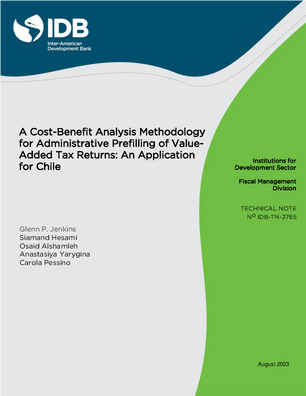Cost-Benefit Analysis Methodology for Administrative Prefilling of Value-Added Tax Returns: An Application for Chile
Date
Aug 2023
Tax administrations (TAs) worldwide have increasingly been moving toward digitalization to increase process efficiency and service delivery. This technical note presents a methodology, and its application for the case of Chile, for evaluating the benefits and costs of a particular component of the TAs digital transformation: prefilling of value-added tax (VAT) returns. The analysis identifies and allocates the net benefits from both the financial and the economic perspectives considering two major stakeholders: the government and taxpayers. The results show that prefilled VAT returns could benefit TAs and taxpayers, with a reduction in taxpayers compliance costs being a primary benefit. The application of the model to the Chilean case shows the economic net present value of the prefilling of VAT returns is US$5.66 billion, with a net benefit to the private sector of US$1.729 billion and a public sector or budgetary impact of US$3.391 billion. Sensitivity analyses show that the results are robust to changes in assumptions, except for the impact on government revenues from the change in taxpayer compliance. Overall, the results show that prefilling tax returns is an effective solution to high taxpayer compliance costs, the associated tax gap, and the risk of burdensome inspections, audit, and tax evasion.




